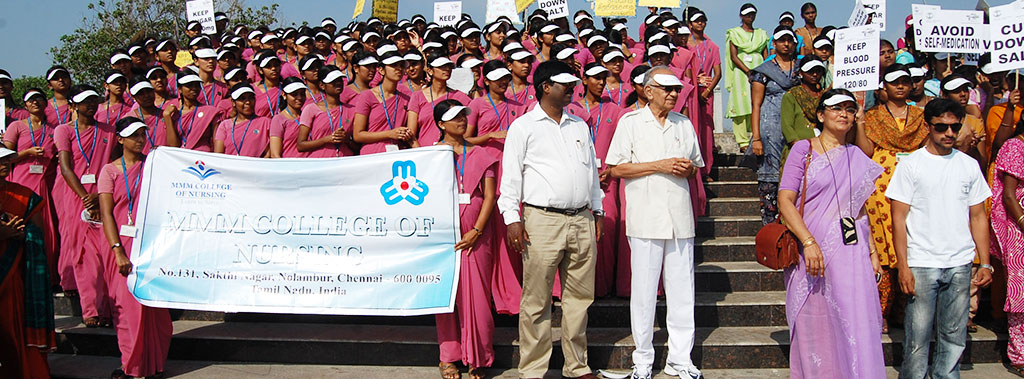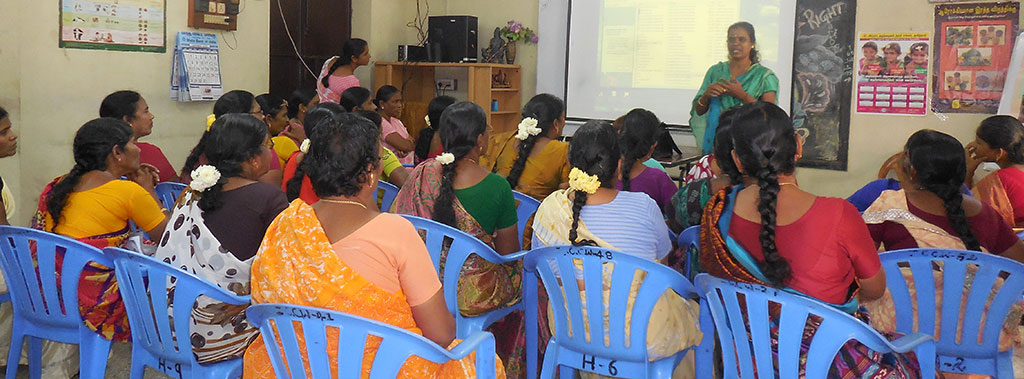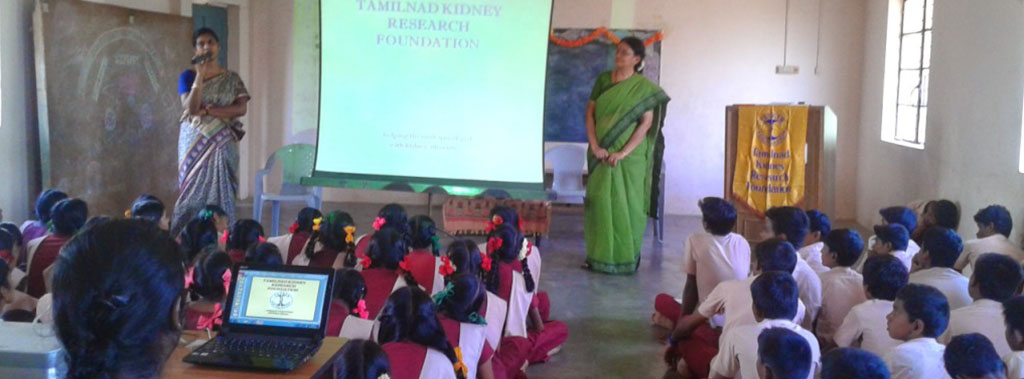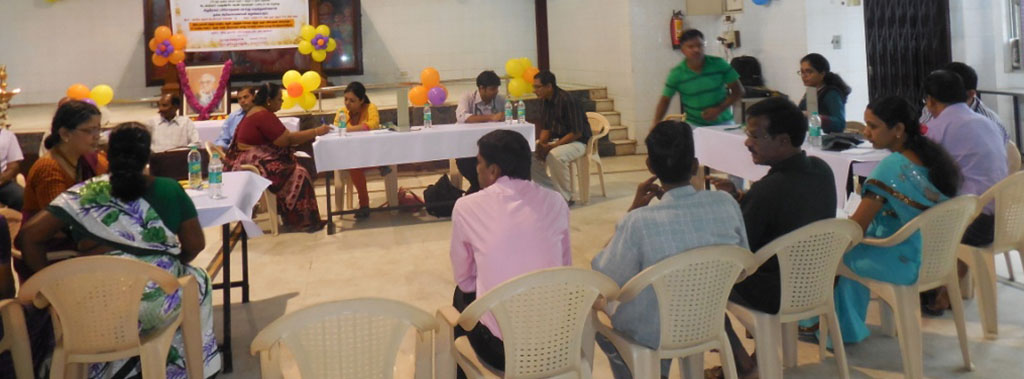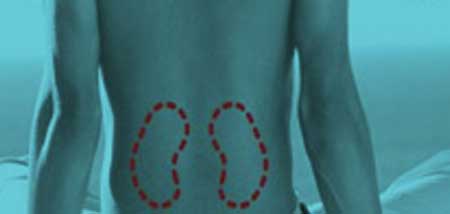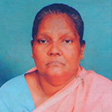TANKER Foundation supported platform for the study of CKDu South Asia Region for the first time along with World Health Organization (WHO), Indian Council of Medical Research (ICMR), Indian Society of Nephrology (ISN) and The Madras Medical Mission Hospital (MMM Hospital).
Chronic kidney disease (CKD) is a major public health problem in India. The CKD registry of India has been formed to understand the epidemiology of CKD in India. Due to the health economics in India, the majority of the CKD affected patients cannot afford renal replacement therapy (RRT) services. There is an unmet need to improve the awareness of kidney disease in India, and the focus should be on prevention and early detection of CKD, by screening high risk populations. The Tamilnad Kidney Research (TANKER) Foundation is a charitable trust established in 1993 with the aim to improve awareness and provide quality affordable treatment to underprivileged patients. TANKER is supported by contributions from well-wishers. It has 3 arms: i) treatment arm, ii) research arm and iii) awareness and screening arm. TANKER Foundation offers free and subsidized dialysis twice weekly to 227 underprivileged patients. TANKER dialysis has been supported by state government funding schemes. TANKER actively supports and conducts research in nephrology. More than 100,000 people have benefitted from TANKER’s kidney awareness programs. The screening programs have provided for early detection of CKD in both urban and rural areas. TANKER award functions are held annually to recognize research and exemplary service to mankind. The TANKER Foundation can be used as a model for developing countries to address the unmet needs in CKD management.
The burden of chronic kidney disease (CKD) is of enormous proportion in India. It is expected to increase further due to increasing prevalence of diabetes, hypertension and an ageing population (1,2). The CKD registry of India was formed in 2005 to study the epidemiology of CKD in India. According to its first report in 2012, diabetic nephropathy (31%) was the commonest cause of CKD, followed by CKD of undetermined etiology (16 %), chronic glomerulonephritis (14%) and hypertensive nephrosclerosis (13%) (3). Data was collected from 52,273 patients from different parts of the country. The majority of the patients (48%) presented in stage V. The average age of presentation was 50.1 ± 14.6 years, and 70.3% of them were males (3). Diabetic nephropathy patients were significantly older. Since the data was collected from hospital based nephrologists, the data represents only the tip of the iceberg. The vast majority of patients with earlier stages of CKD and patients who do not avail hospital based treatment are not included in the registry. The renal replacement therapy (RRT) facilities are scarce and there are wide interstate and urban-rural differences. RRT is unaffordable for the large majority of CKD affected in India, where the GDP spending on healthcare is only 4%, with 1.3% by government (4–6). The GDP-Purchasing power parity per capita in India is US $ 5411.6, among the lowest in the world (7). About 42.7 % of the patients had monthly family income less than Rs.5000 (US $ 79.64), as per the CKD registry. Among the ESRD patients, 63.36 % of patients are on conservative treatment rather than RRT. Due to decreased coverage of RRT by government spending, insurance programs, majority of population living below poverty line and grossly inadequate facilities for RRT, there is an unmet need for awareness, early detection and prevention of CKD through kidney foundations.
There are approximately 54 kidney foundations in India, which are all established by individuals or trusts with different goals. The Tamilnad Kidney Research (TANKER) Foundation (www.tankerfoundation.org) is a registered non-profit charitable trust, founded on 30th June 1993, by Dr. Georgi Abraham and a group of like-minded people to detect, prevent and raise awareness on kidney ailments and to provide quality affordable treatment to underprivileged people. Its sister organization is the Kerala Kidney Research Foundation in the neighboring state of Kerala. TANKER foundation has 3 arms as represented in figure 1 below.
TREATMENT
- Subsidized / free dialysis
- Erythropoietin stimulating agents
- Referral to government hospitals
RESEARCH
- CKD
- Award ceremony to recognize research advances by young investigators
- Research grants
AWARENESS AND SCREENING
- Awareness programmes
- Urine and blood screening
- Advice to at risk population
- Encouragement of organ donation
TANKER Foundation offers subsidized dialysis to 227 patients twice a week, through its dialysis units spread over the state of Tamil Nadu at Chennai, Madurai and Coimbatore. The patients are recruited to TANKER dialysis by looking at their socio economic status and patients are placed on a waiting list and accepted for dialysis. The dialyzer membrane used is polysulphone with 1.1-1.3 m2 surface area. Separate dialysis machines are available for hepatitis C and HIV positive patients.
TANKER Foundation is supported by contributions from individuals, corporate, business houses and dialysis industry manufacturers such as FreseniusR. Recently the industrially advanced state governments in South India have come forward to provide dialysis for the underprivileged people through government funding schemes in which TANKER Foundation has been included, and because of which dialysis has become free for 80 % of the patients undergoing dialysis in TANKER Foundation. The rest pay Rs. 365 (US $ 5.81) for a sitting of dialysis, costing US $ 557.76 per year. A subset of patients travel long distances to reach the TANKER dialysis centers to get their free or subsidized dialysis twice weekly. The dialysis unit has water treatment plant to ensure the purity of the water. Most of them have a functioning fistula and a few of have either have Permcath or AV graft as the vascular access. As the demand is unmet for dialysis, TANKER Foundation is expanding programs through its well- wishers to other parts of the state. All the trustees of the TANKER Foundation are voluntarily involved in regular fundraising to support the organization and expansion programs. Antihypertensive drugs, iron, erythropoiesis stimulating agents (ESA) are provided at affordable costs and supported by the government funding schemes. When complications such as pulmonary edema or access dysfunction arise, patients are referred to either Madras Medical Mission Hospital, Chennai or Rajiv Gandhi Government General Hospital, Chennai for appropriate management.
The Kerala Kidney Research Foundation which is a sister organization of the TANKER Foundation in Kerala state has maintenance hemodialysis units at Kottayam, Thiruvella and Kochi, all placed in secondary and tertiary care hospitals. Subsidized and free dialysis is provided through these dialysis centers for underprivileged people.
TANKER Foundation supports research in nephrology which is highlighted through the Muthoot M. George Memorial TANKER and Kerala Kidney Research Foundation Young Investigator Award given since 2009 for the best young researcher in nephrology, which has a cash prize of US $ 3185.48, a gold medallion and a citation at the annual awards ceremony on 25th January every year. The award has been given to studies on nutrition, immunology, transplantation, pediatric nephrology and community nephrology to young scientists. TANKER Foundation conducts its own research on anemia, chronic kidney disease – mineral bone disease (CKD-MBD), quality of life, diabetic nephropathy, survival on dialysis, nutrition and acid base balance to mention ongoing research. The research work is granted after discussion by the authorized Institutional Ethics Committee. TANKER Foundation also financially supports deserving individuals conducting research in other institutions. These research works done at TANKER Foundation are presented at regional, national and international conferences as abstracts and published in peer reviewed journals.
One of TANKER Foundation’s key initiatives is awareness and prevention of kidney disease. This is regularly done by Mrs. Rajalakshmi Ravi through public awareness programs comprising of visual media and through short message service (SMS) by phone. An estimated 7500 people have been reached through SMS, which aims to educate people on the prevention of kidney disease, and early detection and follow up. As of January 2015, 644 awareness programs have been conducted and 103,387 people have been reached. Talks have been organized in schools and colleges to reach students and spread awareness about CKD.
Following is the data on awareness programs carried out between July 1999 and January 2015.
| Awareness Program | Students | Adults | Grand Total | ||||
| Urban | Rural | Total | Urban | Rural | Total | ||
| No. of Programs | 377 | 17 | 394 | 238 | 12 | 250 | 644 |
| No. of Beneficiaries | 76336 | 4686 | 81022 | 20975 | 1390 | 22365 | 103387 |
At TANKER, we screen individuals above age 45 years and those with diabetes mellitus, hypertension or a family history of kidney disease irrespective of age. The screening programs received a boon when a multinational company provided an ambulance, and through support from nationalized banks, an auto analyzer and a portable ultrasound machine helped us in reaching the community for screening tests. A questionnaire is given to the patients and leaflets are distributed in English and local language, and a physical examination is carried out including blood pressure and body mass index (BMI). The screening tests comprise a standardized serum creatinine level, calculated eGFR, urine examination by dipstick and ultrasound examination. If the people screened are found to have hypertension, persistent proteinuria or elevated serum creatinine, they are referred to nephrology units at government hospitals, or other investigations are performed at a subsidized rate. If patients are found to be diabetic, they are referred for appropriate management. Follow up clinics are at the government medical college hospitals where it is done free of cost. Renal dietitians provide nutritional services to the patients with CKD, diabetes and hypertension. Between April 2005 and January 2015, 106 screening camps have been conducted, and 8952 people have been screened. The prevalence of proteinuria was found to be 17.02% and an eGFR 60 mL/min/1.73 m2 was found in 7.7%. The screening program has provided a platform for early detection of CKD, thus measures can be taken to arrest the disease at an earlier stage and if necessary, referral to advanced nephrology care.
TANKER Foundation recognizes and encourages research and extraordinary service to people, by giving awards to deserving individuals on January 25, annually. In addition to the aforementioned Muthoot award for outstanding young researchers, several other awards are offered as well. The Renny Abraham TANKER Foundation Love for Service Award includes US $ 1595.15 (Rs 100,000), with a gold medal and a citation is given to the most outstanding medical doctor in India who has gone beyond the call of duty in rendering service to the underprivileged. The La Renon TANKER Foundation Sake of Honour Award includes US $ 1595.15 (Rs. 100,000), with citation is given to any person doing exemplary work in his/her field. The K. Venkatanarayana TANKER Foundation Awareness Award has been instituted by the BALAHA Group of Companies for creating awareness of any disease, mental, physical or social. The award carries a cash prize of US $ 1595.15, a citation and a gold medal.
TANKER Foundation has been mentioned several times in the International Society of Nephrology and the International Federation of Kidney Foundation (IFKF) newsletters.
CKD is reaching epidemic proportions in India and other developing countries. The available resources for RRT are not adequate to meet the growing demand. Since the vast majority of the population cannot afford RRT, several charity based kidney foundations have been started in India to serve the underprivileged population. However still, since the resources are strained, the focus should be on prevention of CKD, by promoting awareness among the population about kidney disease and regularly screening diabetics and other high risk population. If detected early, appropriate measures can be taken to arrest or delay the progression of CKD. In a country like India with wide diversity in culture, cuisine, language and beliefs, it is important to understand the diversity and launch a campaign against CKD by a team approach involving the public. Every healthcare worker should play a role expected of him or her in prevention and early detection of CKD. The TANKER Foundation is a model for many developing countries through its treatment arm, research arm, and awareness and early detection programs.
- Abraham G, Thandavan T, Varughese S, Gupta A. CKD in South Asia. Nephrology Dialysis Transplantation Newsletter.
- Vijayan M, Ravi R, Abraham G, Ravi R, Mathew M. Chronic Kidney Disease, A Herculean Task: Are There Effective Means Of Engagement In Alleviating The Burden? The Open Urology & Nephrology Journal. 2014 Jul 11;7:56–9.
- Rajapurkar MM, John GT, Kirpalani AL, Abraham G, Agarwal SK, Almeida AF, et al. What do we know about chronic kidney disease in India: first report of the Indian CKD registry. BMC Nephrol. 2012;13:10.
- Abraham G. The challenges of renal replacement therapy in Asia. Nat Clin Pract Nephrol. 2008 Dec;4(12):643.
- Healthcare expenditure, public (% of GDP). World Bank data. Accessible from: http://data.worldbank.org/indicator/SH.XPD.PUBL.ZS. Accessed on 9 March, 2015.
- Healthcare expenditure, total (% of GDP). World Bank data. Accessible from: http://data.worldbank.org/indicator/SH.XPD.TOTL.ZS. Accessed on 9 March,2015.
- GDP per capita, PPP (current international $). World Bank data. Accessible from: http://data.worldbank.org/indicator/NY.GDP.PCAP.PP.CD. Accessed on 9 March, 2015.

